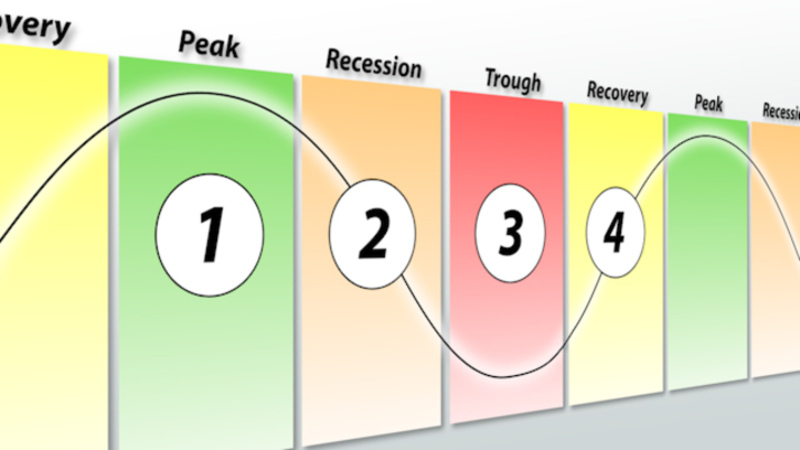Offering various home equity loan options, Citibank meets the diverse financial needs of homeowners. It provides solutions, from flexible terms to competitive interest rates. Those seeking leverage on their home equity can turn here for a comprehensive offering. This article delves deep into eligibility criteria, and application processes and even discusses benefits, drawbacks, and possible alternatives.
Eligibility Criteria and Requirements
Applicants seeking qualification for a Citibank home equity loan typically must fulfill specific eligibility criteria. They need to maintain a minimum credit score, possess an adequate amount of home equity, and demonstrate stable income. During the application process, factors like debt-to-income ratio and property valuation are considerations that Citibank may take into account. Prospective borrowers should review these requirements carefully to determine their eligibility before applying.

Homeowners who may not satisfy Citibank's rigorous eligibility criteria still possess potential options. Several financial institutions provide alternative loan products or more lenient terms specifically tailored for individuals with imperfect credit or lesser home equity. When one explores these alternatives, one can uncover additional opportunities to secure financing and simultaneously leverage their home equity.
- Loan-to-Value Ratio: Citibank and other lenders typically have maximum loan-to-value ratios for home equity loans, limiting the amount of equity a borrower can access.
- Credit History: While a minimum credit score is required, a strong credit history may result in more favorable loan terms, including lower interest rates.
Application Process and Documentation
Several steps comprise the application process for a home equity loan from Citibank. Applicants must initially apply either online, in-branch, or via phone. Concurrently with this submission, borrowers are obligated to provide diverse documents. These include proof of income and property details alongside their identification. These documents undergo evaluation by Citibank. This process aims to gauge the borrower's creditworthiness and set the loan amount, along with its terms. Upon approval, borrowers anticipate receiving funds within a stipulated timeframe.
Upon applying, borrowers face a rigorous underwriting process. Citibank evaluates the lending risk associated with them. This evaluation may encompass income verification, scrutiny of employment status, and an in-depth review of credit history. Moreover, to ascertain its current market value precisely, Citibank might necessitate a professional appraisal of the property.
- Timing: The application process may take several weeks to complete, so borrowers should plan accordingly if they need funds by a specific date.
- Closing Costs: In addition to providing documentation, borrowers should be prepared for closing costs, which can include appraisal fees, title insurance, and attorney fees.
Benefits of Citibank Home Equity Loan
Several benefits are offered to borrowers through Citibank's home equity loans. The potential for lower interest rates, in comparison to other forms of borrowing like personal loans or credit cards, stands as one advantage. Subject to certain conditions, borrowers may deduct the interest paid on their home equity loan from their taxes, an additional perk that enhances financial flexibility and efficiency. Moreover, Citibank offers a range of flexible loan terms. Borrowers have the liberty to select and tailor their repayment schedules following their unique financial situations.
Borrowers can utilize home equity loan funds for a variety of purposes like financing home improvements, consolidating debt, or covering educational expenses. These loans also present tax benefits. Unlike certain other forms of financing that fluctuate with interest rates, home equity loans usually offer fixed interest rates. This ensures stability and predictability in monthly payments throughout the loan's duration.
- Interest Rate Variability: While Citibank offers fixed-rate options, some lenders may provide adjustable-rate home equity loans, which can result in fluctuating monthly payments.
- Tax Implications: Borrowers should consult with a tax advisor regarding the deductibility of home equity loan interest and any potential changes to tax laws that may affect their eligibility.
Drawbacks and Considerations
Consider the numerous advantages of Citibank's home equity loans. However, bear in mind certain considerations. The loan's security on their property exposes borrowers to the potential drawback of foreclosure if they cannot make timely payments. Moreover, fees such as closing costs and origination fees are worth borrowers' attention. One must carefully evaluate these factors and assess their repayment ability before committing to a home equity loan. This is an essential step.

Borrowers must consider how economic fluctuations impact home values and interest rates. A downturn in the housing market or rising interest rates could significantly affect not only their loan payments' affordability but also diminish the overall value of their homes. Consequently, it is imperative that borrowers actively contemplate their long-term financial stability. Furthermore, they should establish a contingency plan to mitigate potential risks associated with borrowing against home equity.
- Interest-Only Options: Some lenders may offer interest-only payment options for a specified period, but borrowers should understand the implications of such arrangements, including potential increases in monthly payments after the interest-only period ends.
- Loan Limits: Home equity loans typically have borrowing limits based on the equity available in the property, so borrowers should ensure they can access sufficient funds to meet their financial needs.
Alternatives to Citibank Home Equity Loans
Homeowners contemplating alternatives to Citibank's home equity loans have several options. They may opt for home equity lines of credit (HELOCs), personal loans, or cash-out refinancing. Each potential choice, with its unique advantages and drawbacks, hinges upon the borrower's financial goals and circumstances. Thus, requiring careful consideration. Borrowers can make an informed decision that aligns with their needs and preferences by actively exploring these alternatives.
Consider peer-to-peer lending platforms, which directly link borrowers with individual investors eager to finance their loan requests. The competitive interest rates and flexible terms of peer-to-peer lending make it an attractive option for those who might not qualify for traditional bank loans. However, potential risks should give borrowers pause. These include higher potential interest rates and comparatively less stringent borrower protection, features found in abundance at standard financial institutions.
- Flexibility: Unlike home equity loans, personal loans, and peer-to-peer lending often offer more flexibility in terms of loan amounts and repayment terms.
- Credit Impact: Borrowers should consider the impact of taking on additional debt on their credit score and overall financial health before pursuing alternative financing options.
Conclusion
In conclusion, Citibank offers a range of home equity loan options designed to provide homeowners with access to funds using their property's equity. Understanding the eligibility criteria, application process, benefits, drawbacks, and alternatives is crucial for prospective borrowers. By carefully evaluating these factors, individuals can determine whether a Citibank home equity loan is the right financial solution for their needs.




